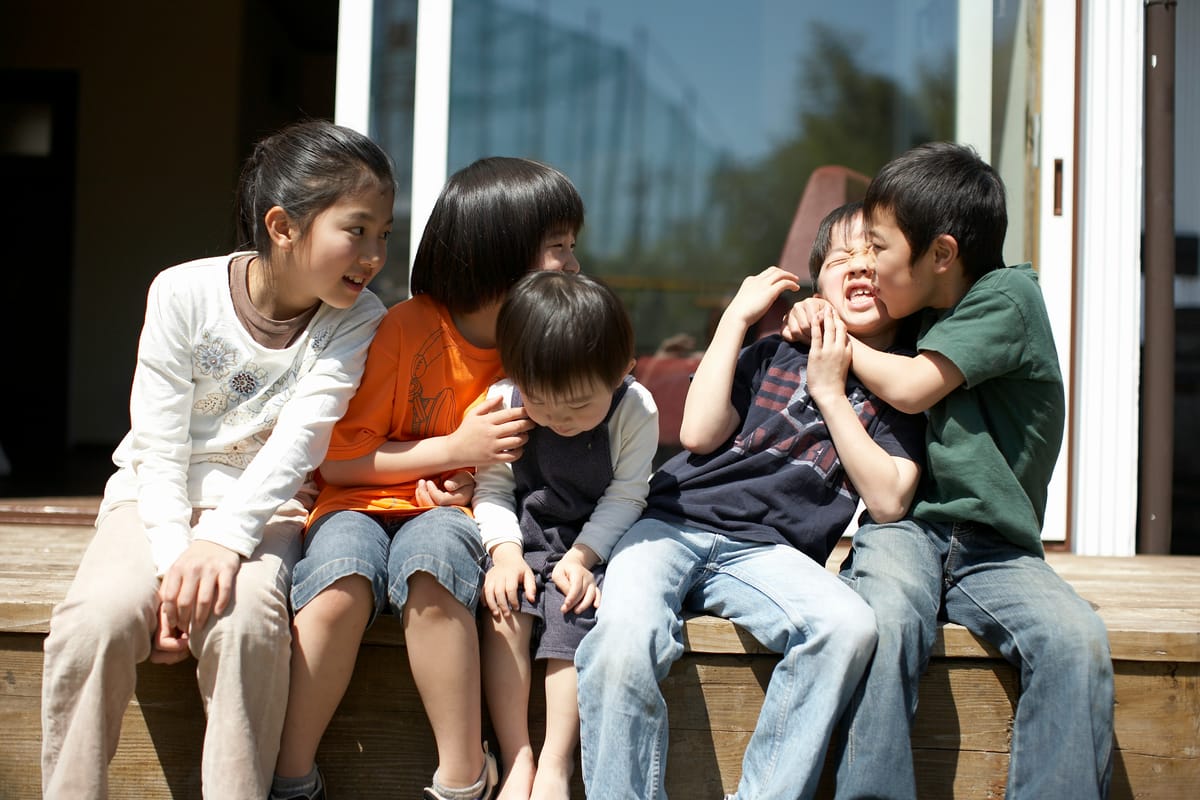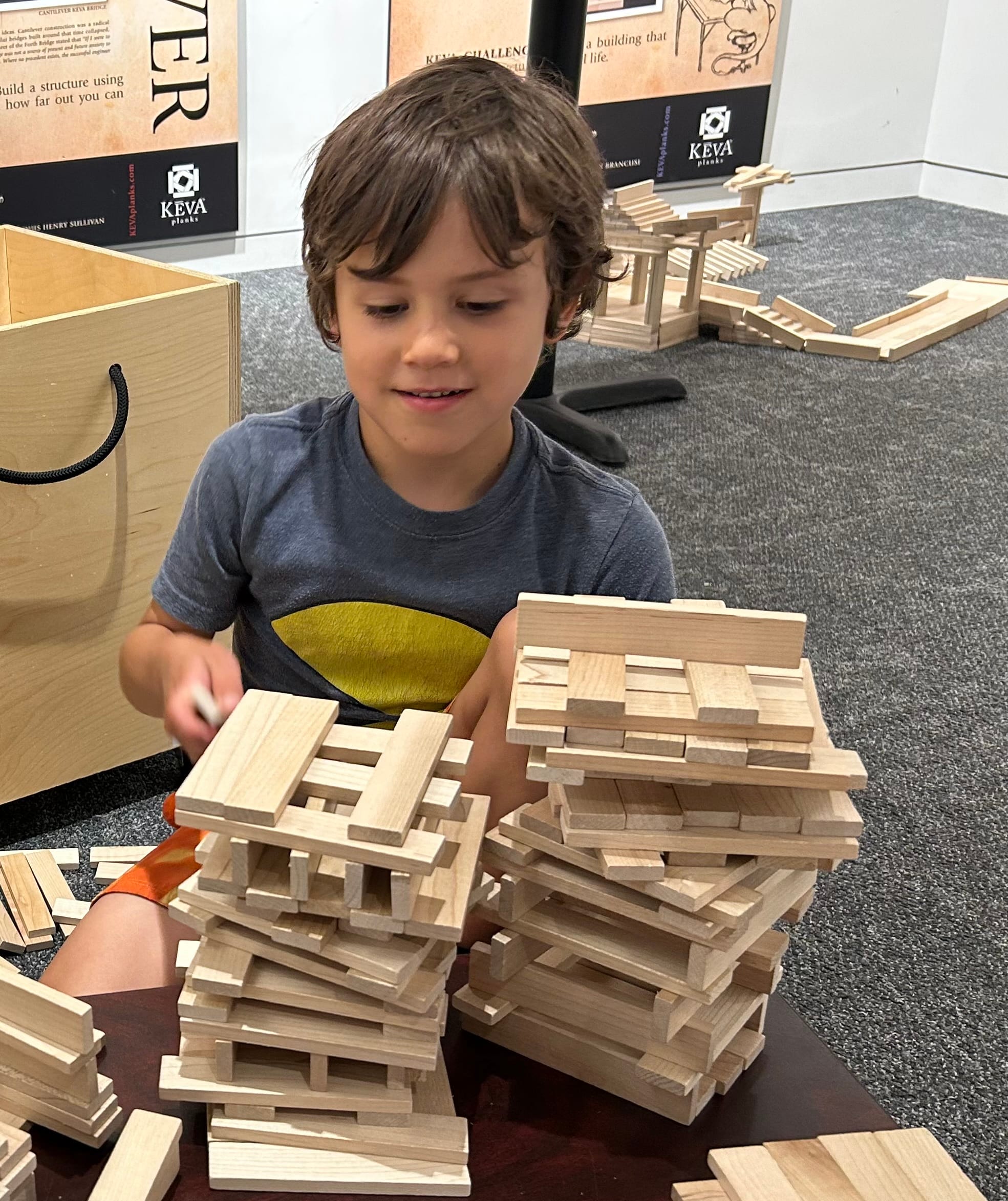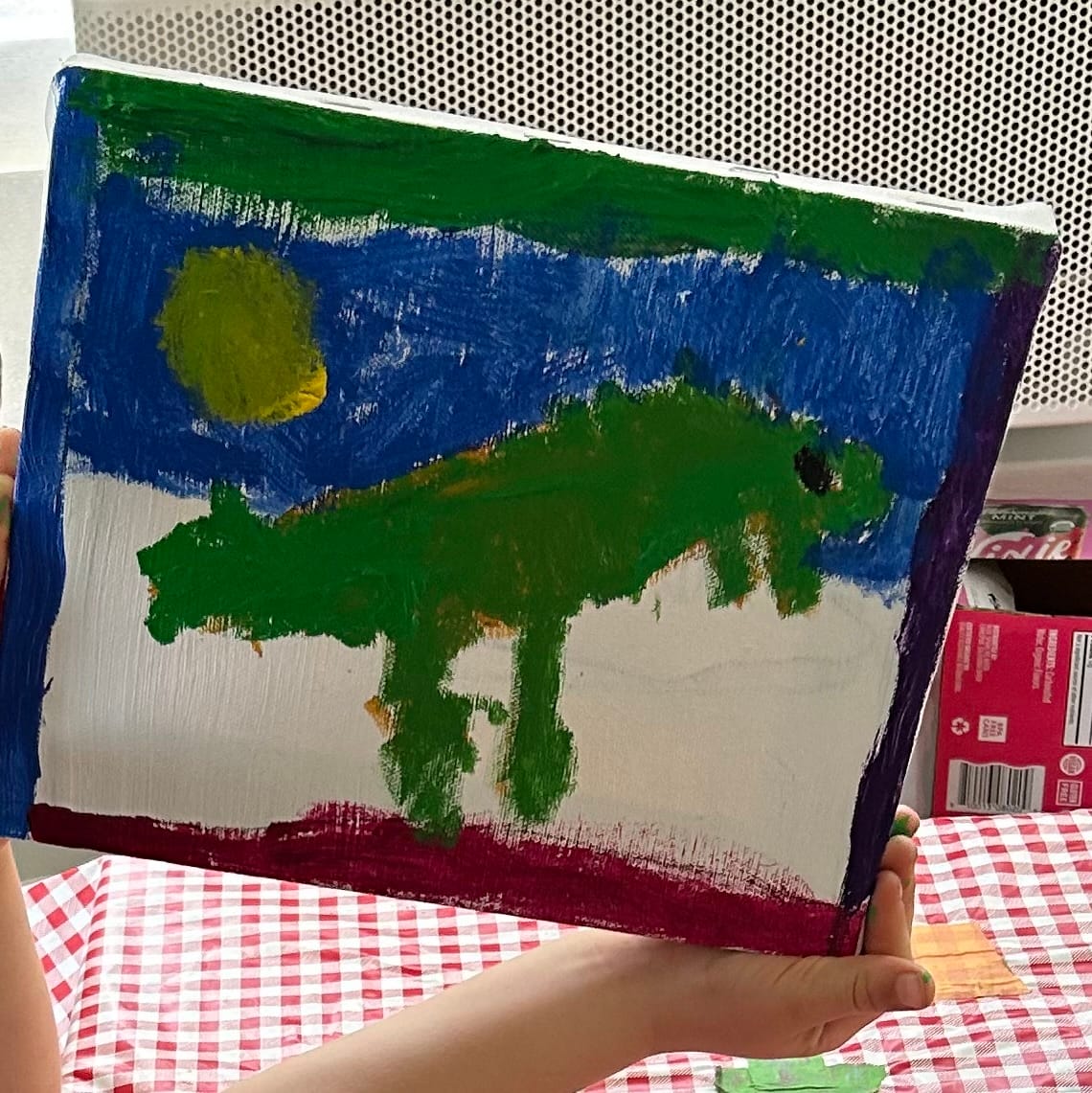REAL Grandma Camp (Part 3)

I don’t want to scare you (or our adult children) away from future Grandma Camps, but…there’s ideal Grandma Camp—the peaceful, productive, social-media perfect kind—and there’s what actually happens, which can be serendipitously lovely, or (umm) chaos. I’ve written up my hopeful schedules and strategies for ideal Grandma Camp here and here. But maybe the strategies I’m retrospectively mulling will help you more in planning your own real (!) Grandma Camp experience. Hope they help me in August.

Highlights
We did have some very good times at Grandma Camp! Mostly these drew on the list of desired activities the grandkids and I jointly made before Grandma Camp started, but some were ad-libbed.
One happy adventure was a trip to an indoor park on a very rainy day. Fun in itself, but the biggest novelty was taking the bus to get there. One grandchild was so taken with the ride that he is now memorizing the local bus routes.
Pedaling a 4-person pedal boat on nearby Lake Harriet was a success, too—an activity pronounced “more fun than I thought it would be” by the hardest-to-please grandchild. The oldest and I provided 98% of the power (a serious workout!), and the littles bonked buoys.
Museums of choice were great, too. The Bakken Museum devotes a room entirely to building with 1000s of Keva planks—totally simple, totally absorbing. The Bell Museum displayed water from their small pond via a microscope that projected to a large screen. So exciting to see leeches, water fleas, miniature clam- and shrimp-like arthropods, and unidentified tiny zooming things up close.
Off-list, one grandchild tried painting with acrylics on canvas. And, at his request, we packed snacks and biked around Bde Maka Ska to see his brother at a nearby sailing camp (5 miles round-trip).

Lowlights
Sadly, our fun frequently devolved into arguments, howling, hurt feelings, and occasional hurt bodies. Kid factors, Grandma factors, and some combos all played a role.
The kid factors didn’t stem from an individual kid but from a combustible combination: differences in age, interests, and skills; very high energy x three; letting off steam from a year of school; sibling rivalry; shifting allegiances in a triangle (two brothers vs one cousin, two cousins vs one sibling or the other); and the excitement of being together.
One aspect of combustible was that the kids had zero interest in the quieter activities we had included on our list—things that might have given me a little break from the kids’ raw energy—like bug hunting, board games, or art projects. Instead, they wanted a lot of sports, running, and stampeding…and wanted me to do it, too. That took a lot of my energy, which (see Grandma factors) I didn’t always have.
The more troubling aspect of combustible was the fighting and yelling. Some amount of this dynamic has routinely been a feature of our interactions—kids will be kids, after all; I have written about dealing with it here, here, and here. But this time, all the factors (and maybe some I haven’t figured out) ramped it up, so that the general dynamic often shifted from “let’s play” to “let’s fight.” Between the fighting and the yelling about the fighting, we ended up with a lot of stressful times.
Meanwhile, the Grandma factors wore down my ability to deal effectively with the kid factors. I came into Grandma Camp already stressed after weeks of caregiving for various adults (and a little bit the kids). So I was underprepared. And I had the continued distraction of the adult caregiving periodically during Grandma Camp hours—phone calls, conversations, visits. Supposedly there are people out there who thrive on multitasking—or who at least are able to shift relatively quickly and seamlessly from one task to another. That wouldn’t be me. I do best when I very carefully clear the decks so that I can do one thing at a time. During ideal Grandma Camp, all I’d be doing is Grandma Camp. Plus, I’d build in a little rest time. My shifting attention was doubtless apparent to the kids, and that and the lack of a break time sapped both energy and creativity that might have helped me manage the kid factors better.
The most important combo factor was the grandma:grandkid ratio. With three to attend to in the wild, there were a couple times safety took a hit: The kids think they are old enough to cross streets themselves, but their observation techniques are sorely lacking. And when I’ve fallen behind…
So, what’s the point? Obviously, “ideal” Grandma camp is never going to happen: there’s always something! But—believe it or not—I’m eager to do Grandma Camp again as scheduled at the end of the summer (hear that, parents?). In preparation I’ve been mulling over some strategies to deal with the factors that partially derailed our fun last month:
• For the caregiving distractions, ignore the phone until a designated period—probably lunch-time. Grandpa takes over for lunch and cartoon time to give space to deal with all of it then, or it sits until the kids go home.
• For mental exhaustion/stress, be sure to lead into the week with some relaxation, and be sure to relax in the evenings. Continue to exercise before the kids arrive.
• For the kid factors, schedule tighter. “Here’s what we’re doing,” vs “What shall we do?” This is the lesson I learn from the things that went best—unless I was with just one kid, all the highlights were scheduled activities.
• Safety-wise, no biking that involves crossing streets until the kids are older, unless there are two adults—one to lead and one to follow up the rear. Walking, we have to stay together, no running ahead (the race home can start on the last block).
• Write down a schedule and my own list of alternatives to altercations and post it on the fridge. The kids can read, so they can be helpers in keeping things moving in a positive way. They can also add, in positive ways, to the list.
• Take a clue from my favorite adult caregiving practice: Pause as the kids arrive and say a prayer or meditation for centering, intention, and guidance. The practice gives a chance to both accept and share (with God or “the universe”) the caring and responsibility: Ready for action, in (relative) peace of mind.
OK! Ready for next time!